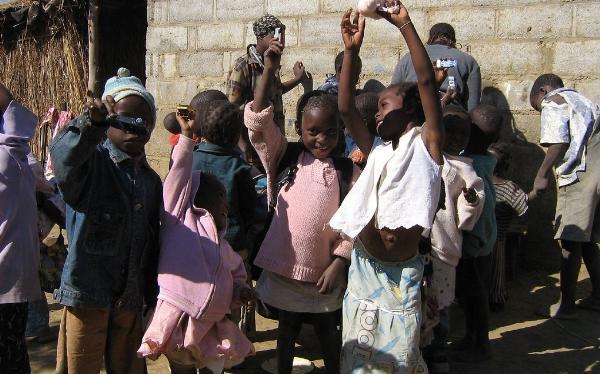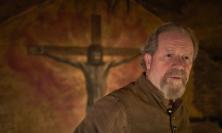As a long-awaited deal outlining power sharing in Zimbabwe is announced, David Harold-Barry SJ reflects on what this will mean for the people of Zimbabwe, and reflects on the continuing struggles and hopes of the population.
On 11th September, President Thabo Mbeki of South Africa announced a deal between the president of Zimbabwe, Robert Mugabe, and the leader of the opposition, Morgan Tsvangirai. There has been quiet celebration now that quiet expectations have been met. This deal comes after too long a time, and there have been too many imminent settlements that have never come to fruition, for people to rejoice wildly. ‘Settlements’ brokered in the past turned out to be no settlements at all. In 1988 there was a Unity Accord between Joshua Nkomo’s ZAPU and Mugabe’s ZANU PF which left the former bitter and seething within. The ruling party simply absorbed ZAPU into itself. The accord did nothing to address the grievances of the Ndebele over the massacres of Gukurahundi, when the government took extreme measures to quell what they saw as a rebellion. And the greatest settlement of all that brought independence to the country also brought, over the years, disappointment to different groups. The whites, many of whom were undecided about independence, became embittered when they found themselves rejected and expropriated. And many other groups – such as women’s groups, trade unions, the Savings Club movement, the press and the judges – all experienced the heavy hand of government control which frustrated their initiative and creativity.
International financial institutions in the 1990s proposed – imposed would be closer to the truth – an Economic Structural Adjustment Programme, which the government accepted despite its damaging effects on the economy and subsequently on the living standards of the people. As the effects bit deeper various protests took shape in the form of struggles for a free press, free access to information technology, free trade unions, freedom from interference in the judiciary and finally an opposition party in parliament. The government’s response was to do all it could to curb these growing freedoms and assert ever greater control.
The last nine years have seen the results of all these developments. The economy has shrunk, inflation has reached indescribable levels, unemployment is at 80% or more, schools and hospitals are functioning only with the greatest difficulty and starvation is gripping more and more areas of the country. There are reports of prisoners dying for want of food.
When everything is flat it takes a strong message to awaken hope. Zimbabweans are down flat but they have not despaired. In fact their resilience is remarked on with admiration by observers. It shows itself in the unfailing humour with which every new twist in the ongoing catastrophe is announced. But it does make people hard to convince and unwilling to get excited about news of an ‘agreement.’
The details of this agreement were announced on 15th September. They seem to represent two governments, two cabinets. But the devil is not in the details this time. They represent a compromise panelled together. They will allow both sides to exploit the ambiguities to their own advantage. The devil will be in the spirit in which the task of rebuilding the country is approached. Will both ‘governments’ rise above their own interests to put the past behind them and work together? There are some hopeful signs. Parliament has already been called and when the election for a speaker took place a few ZANU PF members voted for Tsvangirai’s candidate. That does not amount to a split in the party but at least it indicates that some are prepared to make personal, in contrast to party, decisions even if it was a secret ballot and their identity remains unknown.
Secondly, Tsvangirai has become a hardened political warrior during his long apprenticeship. Gone is the confident rhetoric when he first emerged as the leader of a formidable party in 1999. His opponent has bested him at every turn, blocking and frustrating him and even ‘bashing’ him physically. Tsvangirai has gone through fire and has a much better idea of politics as ‘the art of the possible.’ If he has made concessions he has done so with his eyes wide open. And he knows that he has the people with him. They yearn for change and he promises it. If he is able to exploit the political space by, for instance, the time-honoured weapon of the mass rally, he will demonstrate his support and reinforce his ability to get things done. The settlement has given him power over the police who, up to now, have blocked his attempts to meet the people in large gatherings.
And finally, the agreement, as one commentator put it, enables the opposition to have ‘one foot in the door.’ For the first time in the history of Zimbabwe, Robert Mugabe has made some concessions. The ball is now in play and the field is more level than it has ever been. The teams are more evenly matched and there is some hope for a few goals that will delight the crowd.
I have just returned from a visit to Europe and persistent questions about our situation in Zimbabwe. With slightly pitying eyes I would be asked why we can’t solve our problems? We recently celebrated the feast of Our Lady of Sorrows, commemorating that moment in John’s gospel where Mary stands at the foot of her Son’s cross. As we contemplate her we realise there is nothing she can do to change the situation. She just has to be there and in time her Son’s sufferings and her own vigil will bear fruit. She cannot force the pace. She cannot push the river.
Her waiting is the waiting of the poor in Bangladesh, as they endure year after year of flooding. Her waiting is the waiting of the people of Darfur, as they endure year after year the depredations of the militia. And her waiting is the waiting of the people of Zimbabwe as they wait for their leaders to finally run out of all the options that bring no solutions.
While I was in Europe I spoke to a congregation about our situation and the way people were managing as best they could. I spoke of their resilience and their cheerfulness. Afterwards the parish priest said to the people, ‘today we have heard a message that gives us hope in our own lives.’ I was touched. Here I was thinking I was on the receiving end of support and encouragement and the opposite was happening. They, in a seemingly prosperous parish in middle England, were receiving hope from Zimbabwe.
We stumble easily onto sacred ground. We can be impatient for solutions and quick in our conclusions. What is happening in Zimbabwe is the culmination of our passion. We cannot see these years of suffering as wasted years. They have been our Gethsemane and they have broken us and moulded us anew. Sometimes I even feel sorry for other countries that have not gone through our experience though at the same time I would not wish it on anyone. But we have grown wiser. In the first years of independence we relaxed and allowed our leaders to do what they wanted. They rampaged through our institutions and we sat back and did little. Now we know that creating a society, a country, is no automatic task. We have to consciously work at it and hammer out in detail the sort of institutions we want. And these will be structures that most clearly mirror the yearnings of people for participation, accountability and subsidiarity. ‘Participation’ was written into ZANU PF’s manifesto for the independence elections of 1980 but it was never put into practice. It grandly spoke of the involvement of the people in decision-making. It never happened. But perhaps now it can.
Accountability is the foundation of any free society and it too is not easily achieved. Subsidiarity, first mentioned by Pius XI in 1931 and recently adopted as a buzz word by the makers of a new Europe, means that every organisation in society has its own level where it functions best. You don’t ask the Minister of Water Resources to tell you where to site a borehole in your community. That is your job.
To close, I would like to share a word about the AIDS that is still devastating our families and communities. In all the talk about inflation and shortages the woman sitting by the bedside of her daughter or son dying of AIDS and leaving four young children has been forgotten. She too is part of Mary’s waiting and for her the agony will go on.
David Harold-Barry SJ is the Director of Silveira House Development Education Centre in Chishawasha, Zimbabwe.






